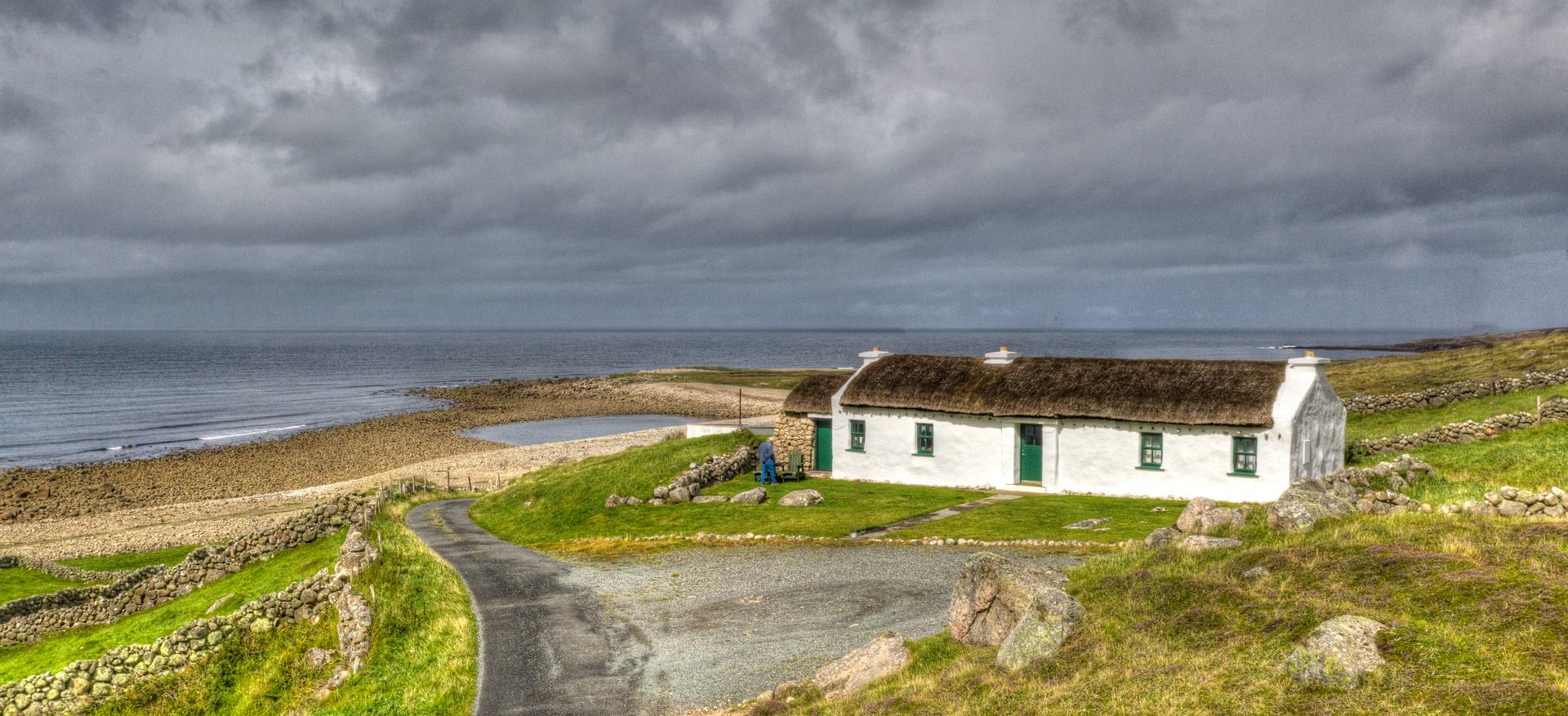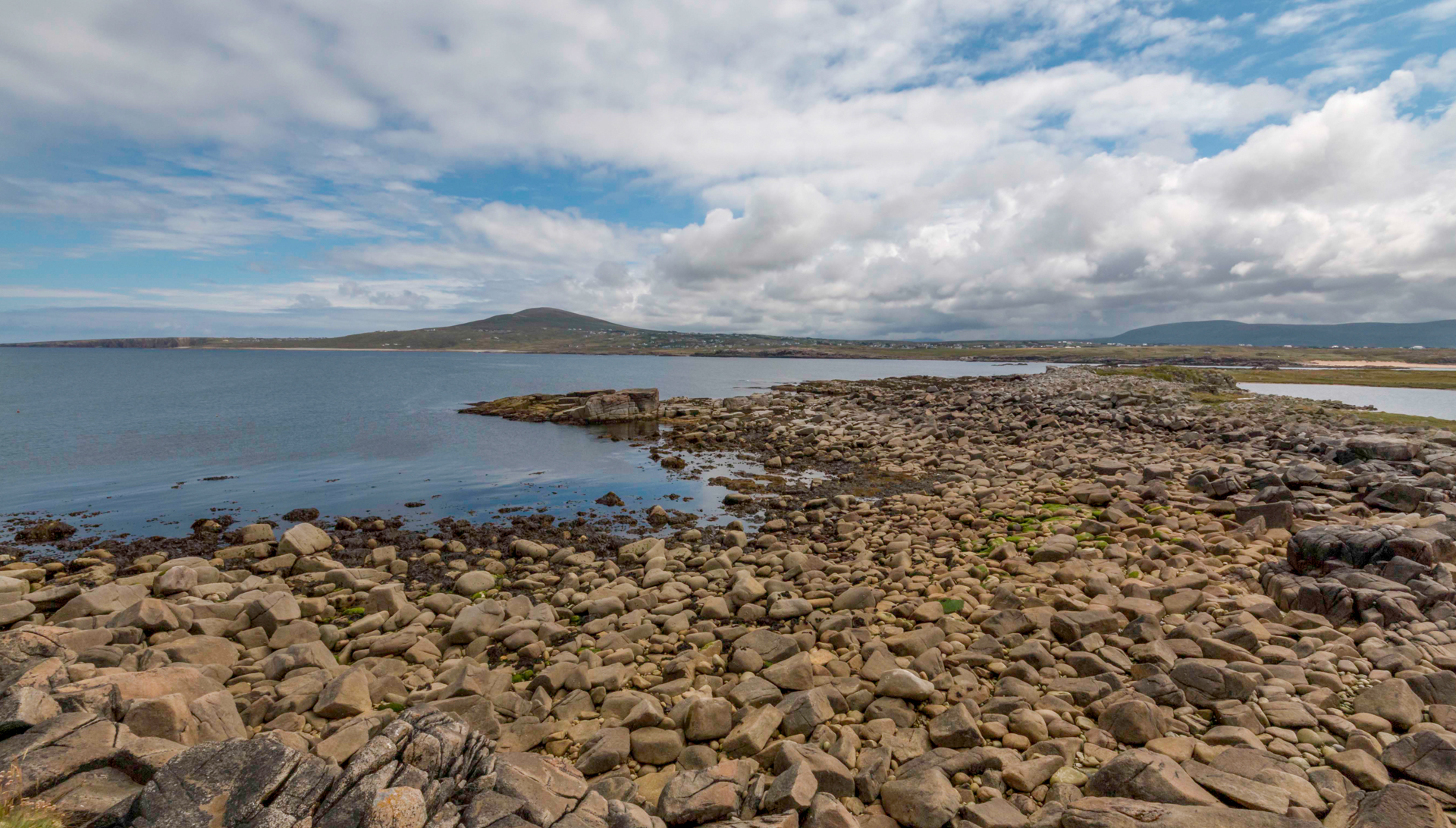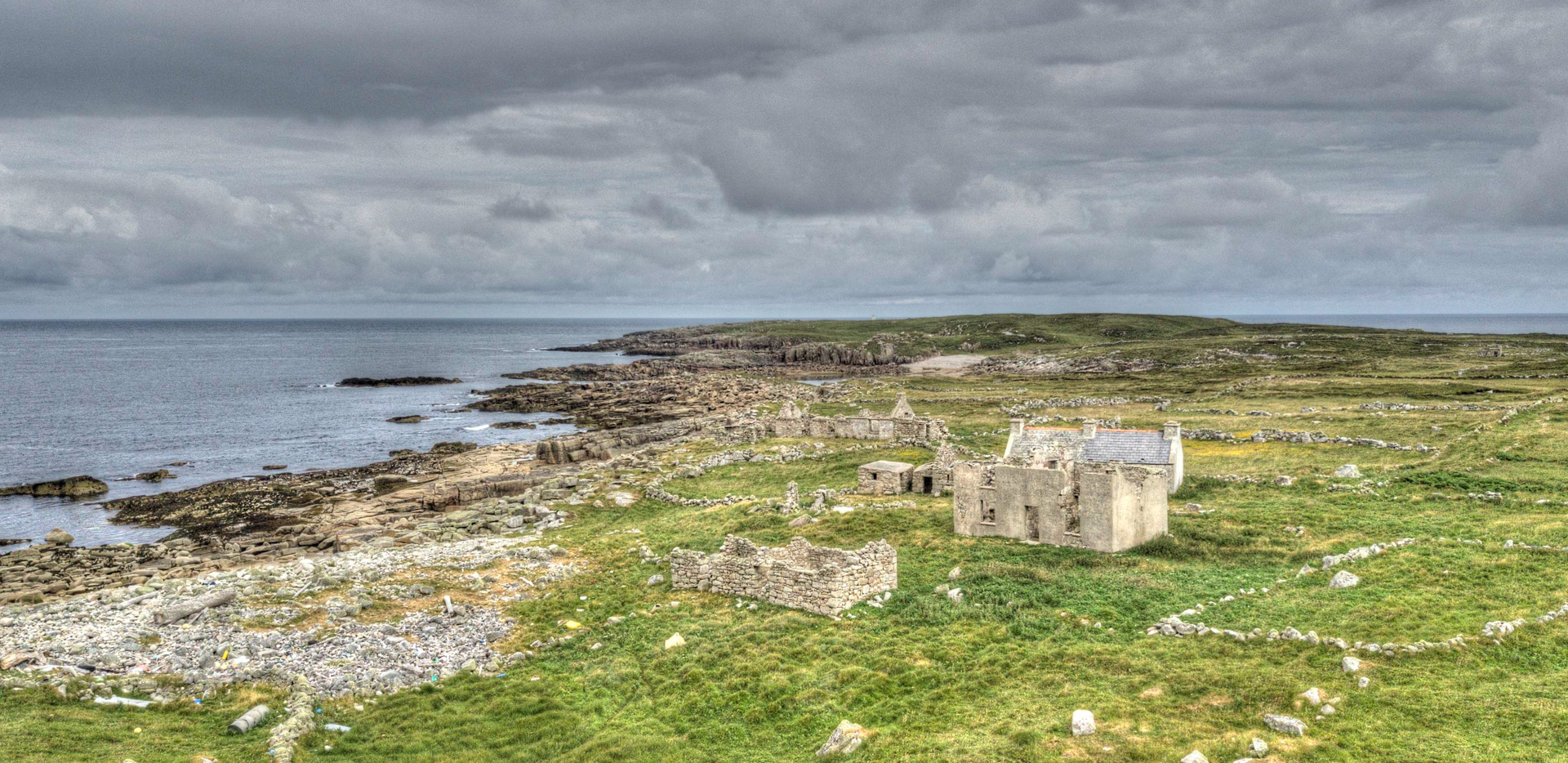Teach Ownie Mór was the local
teach airneail when I was growing up in rural
Donegal in the 1970s. It served lower Bun-a-Leaca, while Teach Mhuiris catered for the upper half.
Ownie Mór was a warm, kind, and helpful neighbour who had emigrated to Glasgow during the war years. During one fierce German air raid in World War II, while his roommates trembled in fear, it was said Ownie slept soundly through it all.
He returned home in the 1950s and married Nan, a naturally friendly and talkative soul. Their quiet generosity and openness led to the informal founding of a local gathering house, the teach airneail for the area.
From the 1950s through to the late 1980s, their home was the nightly meeting place. No invitations were issued. Around 8pm, up to ten neighbours would gather and tell stories until 10:30.
The Stories They Shared
These weren’t idle chats, they were full-bodied oral histories. Tales of emigration, wartime Glasgow, dodging conscription, courting, romantic crossbar bicycle rides, matchmaking, and attempted barn romances interrupted by the sudden birth of a calf.
There was no electricity, no radio, no TV, and no running water. Yet every night, two mugs of tea and fresh home-made bread were served, all prepared on the turf-burning open fire. At Christmas, the fireplace was decorated with cards from the faraway diaspora, a true signal of the family’s warmth and reach.
I recently spoke with my brother Colm, who remembers that time well. We listed the regulars, all sadly gone now: Seoirse Mór, Brinie Beag, Mickie Sheamuis, Donal John Eoghain, Charlie Sheamuis, Johnny Thadhg Mhicíl, Ownie Róise, Hughie Eamoinn, Hudie Thadhg Mhicíl, Ownie Hughie, and Joe Mháire Thaidhg.
All conversation was in Irish. Most couldn’t speak English, even those who had returned from Scotland. There was no judgment, no gossip, no negativity, only comhluadar, meitheal, and quiet trust.
“We live in the shelter of each other.” — Old Irish proverb
A Way of Living
Every home grew its own vegetables, milked its own cows, and baked its own bread. During turf-cutting season, the workers returned to the beneficiary’s home for the evening meal. Houses were never locked. Most cars were uninsured, unlicensed, but nobody cared because there was nothing to fear.
Only two landlines existed in the townland. Ours was Bunbeg 94. To make a call, you had to go through the Bunbeg exchange. On Monday nights, Biddie Sheain Bheag came to our house to book a call to her daughter Máire in Glasgow, often waiting over an hour to connect.
Today we have WhatsApp and Zoom. Back then, we had something deeper, something human, true presence.
Instant but Distant
Modern technology lets us contact anyone instantly. Time zones are now our only real barrier, but something has been lost.
Back then, if you called to someone’s home, you walked straight in. Doorbells and locks hadn’t reached Donegal. Today, even making a phone call is preceded by a text asking permission. Zoom calls require several days’ notice.
In 1990, while living in Glasgow, I visited my girlfriend at her brother’s house. Still steeped in Donegal ways, I walked straight in without ringing the bell. I was ridiculed for months, and the story gained wings.
When I returned to Ireland in 2000, I became close friends with John Barrett from Kerry. His father, a journalist, had played a key role in exposing the Kerry Babies scandal. For the past 25 years, John and I have spoken by phone two or three times a week, yet I’ve forgotten what he looks like, as I haven’t seen him in 15 years.
Another great friend, Mick Shields from Fanad, a GAA legend in Glasgow, now stays in touch by WhatsApp. I last saw him at the 2025 All-Ireland Final. Before that, not since 2014.
In the 1980s, everyone within five miles knew each other. Since leaving Donegal, I have rarely known my neighbours, not in Glasgow, London, New York, Southampton, or Dublin. I lived above and below people for years and never met them.
“The great paradox of communication is that we have never been more connected, yet never felt more alone.”
— Unknown
Conclusion
That’s the contrast. Remote Donegal in the 1970s, without internet, phones, or TV, was more connected, trusting, and present than anything WhatsApp can deliver.
We have gained access, but we have lost presence. We have gained speed, but we’ve lost warmth. Teach Ownie Mór quietly closed its door in 1986, and with it, a whole way of life vanished. Yet in memory, those voices still gather by the fire, speaking a language that penetrates through to the soul.
Eamonn Coyle is a Chartered Engineer and Chartered Environmentalist, originally from the Gaoth Dobhair Gaeltacht



